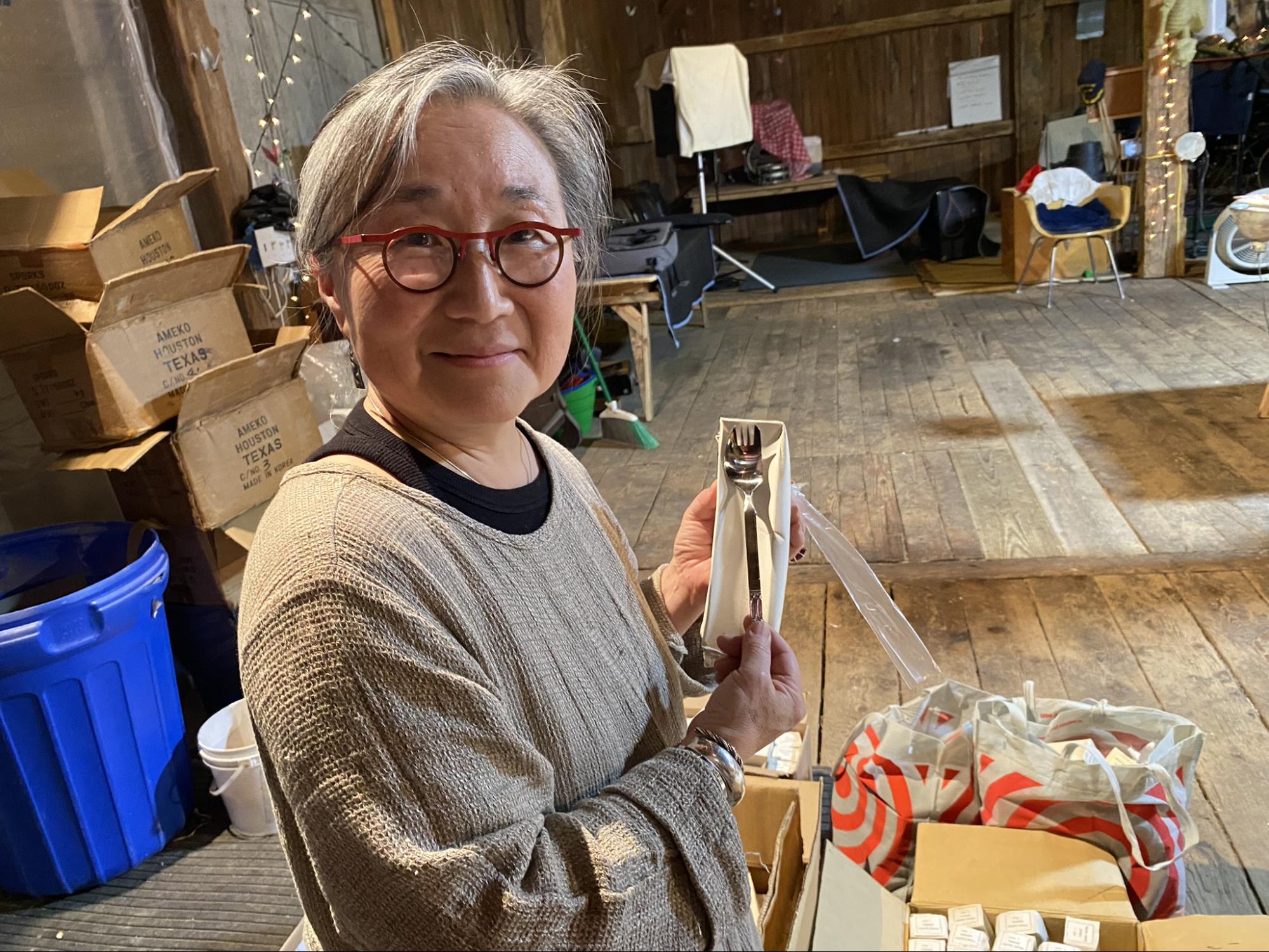ICSD’s cafeterias use approximately 268,740 single-use spoons and forks every year, according to Beth Krause, director of the ICSD Child Nutrition Program. A combined effort from Zero Waste Ithaca (ZWI), PlasticFreeRestaurants.org, and the ICSD Child Nutrition Program plans to reduce this plastic waste with the rollout of 3,200 reusable stainless steel sporks, one school at a time.
“By transitioning from throw away one time use plastic ware to reusable sporks, Ithaca [City] School District will teach an important basic daily lesson. We need to nourish our children’s futures with practical, healthy examples of smart options for maintaining a healthy world,” Inshik Lee, a member of ZWI and the provider of the sporks, told The Tattler. Her father designed and ordered thousands of reusable, stainless sporks in the 1970s, with the hope of being able to sell them to hospitals, schools and restaurants as a way to save water and labor by washing just one utensil. However, the plastics industry rose to prominence instead, and the sporks sat idle for over fifty years. Now, with efforts to reduce wastes and live more sustainably, the reusable, stainless steel sporks can finally be put to use by ICSD. “My father was ahead of his time, really!” exclaims Lee.
The sporks will eventually be introduced at all ICSD’s campuses, starting with the Lehman Alternative Community School (LACS) and Boynton Middle School. Members of ZWI have done outreach at LACS and Boynton to raise awareness and educate about this initiative. Yayoi Koizumi, the founder of ZWI, told The Tattler, “It is essential to educate everyone about the reasons behind this transition, emphasizing its significance and the critical need to treat these new reusable sporks with care.” The primary concern about the effectiveness of this initiative is that students might dispose of these sporks or bring them home, rather than returning them to the cafeteria so that they can be reused.
The hundreds of thousands of plastic utensils disposed of in ICSD each year end up in Ontario County Landfill, where nearby residents face issues such as Per- and Polyfluorinated Substances (PFAS) water contamination, chronic traffic congestion, higher than average rates of cancer, and a toxic odor. According to Koizumi, “It’s important to underscore that both traditional plastics and bioplastics need to be evaluated in terms of their entire lifecycle, taking into account their emission and contamination potentials. When we do so, the adverse climate impact becomes glaringly evident due to the colossal amount of trash being sent to landfills.” In other words, reducing plastic waste improves public health and the environment. “Furthermore, it’s worth mentioning that the district stands to save money in the long run by responsibly maintaining durable reusable foodware,” noted Koizumi.
ICSD’s purchase of these sporks was made possible by a grant of 6,400 dollars from PlasticFreeRestaurants.org, a non-profit working to eliminate single-use plastic from restaurants and school cafeterias by subsidizing the purchase of reusable food ware. John Meyer, the executive director of PlasticFreeRestaurants.org, told The Tattler, “We believe that local and state governments should be taking the lead in banning single-use plastic from schools and restaurants, but until they do, we are here to eliminate as much of it as possible.”
“Zero Waste Ithaca is excited about the introduction of our shiny and beautiful reusable sporks, as we believe they will serve as a catalyst for the entire district to the transition towards more sustainable and zero-waste cafeterias,” Yayoi Koizumi told The Tattler. However, “The introduction of sporks is just the initial step in our mission. Our hope is to completely phase out all single-use plastics and replace them with reusable alternatives.”

Yayoi Koizumi, founder of Zero Waste Ithaca, with a sign she’s working on. Susanne Jensen

